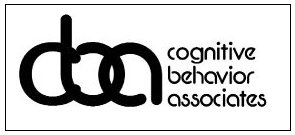Substance Use Disorders is destructive disease. It wreaks havoc on the physical body while simultaneously eroding relationships and warping the affected person’s mental state. Watching someone you love suffer through that experience can feel like an impossible burden to bear at times, but the truth is that no one can beat substance use disorders alone. But how can you go about helping a loved one who struggles with dependency?
If your loved one wants a way out of their substance use disorders, they will need your support. Unfortunately, finding a balance between protecting your own well-being and caring for a self-destructive person is not an easy task. The good news is that Cognitive Behavior Associates can help. Here are some ways you can help improve your communication with your loved ones in order to build up the trust you’ll need to get them into an effective therapy program.
Stay Calm
It is perfectly normal for emotions to run high when a person close to you begins to exhibit the signs of substance use disorders. Unfortunately, the negative emotions that come to the surface in those situations are not helpful for you or for your loved one. If someone close to you is exhibiting several clear signs of substance use disorders, such as:
- Frequent Intoxication
- Lethargy or Irregular Sleeping Hours
- Job Loss or Failure in School
- Mood Swings
- Defensive Behavior
- Lying About Their Substance Use
- Stealing to Pay for Their Substance Use
Then it is time to have a chat.
Some people do still choose to organize interventions with the help of a therapist, but this is a personal choice. Interventions have to be done very carefully, and they can be overwhelming for some people. In many cases, it may be better to have a one-on-one conversation with your loved one. You don’t need to ask probing questions. Just state your concern and emphasize your willingness to help.
Remain Logical
People suffering from substance use disorders do not behave logically. Their brain has literally been rewired to support their compulsion. Sadly, that means that a person with substance use disorders may very well say or do hurtful things to the people closest to them. If you’re in a negative situation with your loved one, then it is important to remain logical because they may not even be capable of logic at that point.
Of course, that doesn’t mean your emotions aren’t valid. It is just that airing them during an explosive episode isn’t productive. In fact, it could be harmful to your long-term relationship and their recovery. Generally speaking, it is much better to discuss your negative feelings during a time when they are calm or when you are with a professional therapist.
Set Clear Boundaries
Helping someone fight substance use disorders is a challenge, and the last thing you want to do is damage your own well-being or enable their destructive behavior. In order to protect yourself and your loved one, it is vital that you have clear boundaries from the beginning. Boundaries ensure that your loved one understands your limitations and expectations, which can help through the process. You will certainly run into new situations throughout the process, but your therapist can help you to navigate them over time.
By keeping these three bits of advice in mind, you’re helping to build a positive relationship that will help you support your loved one through their recovery without sacrificing your own well-being. You can use that relationship of trust to help introduce CBT for substance use disorders once you feel that they may receive the suggestion more positively. Once there, CBA’s cognitive behavior specialists will do everything they can to take your loved one down the long road of recovery.

